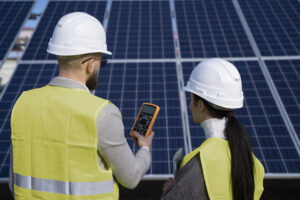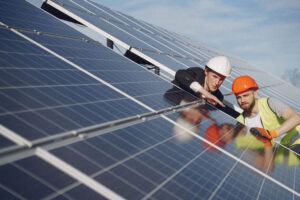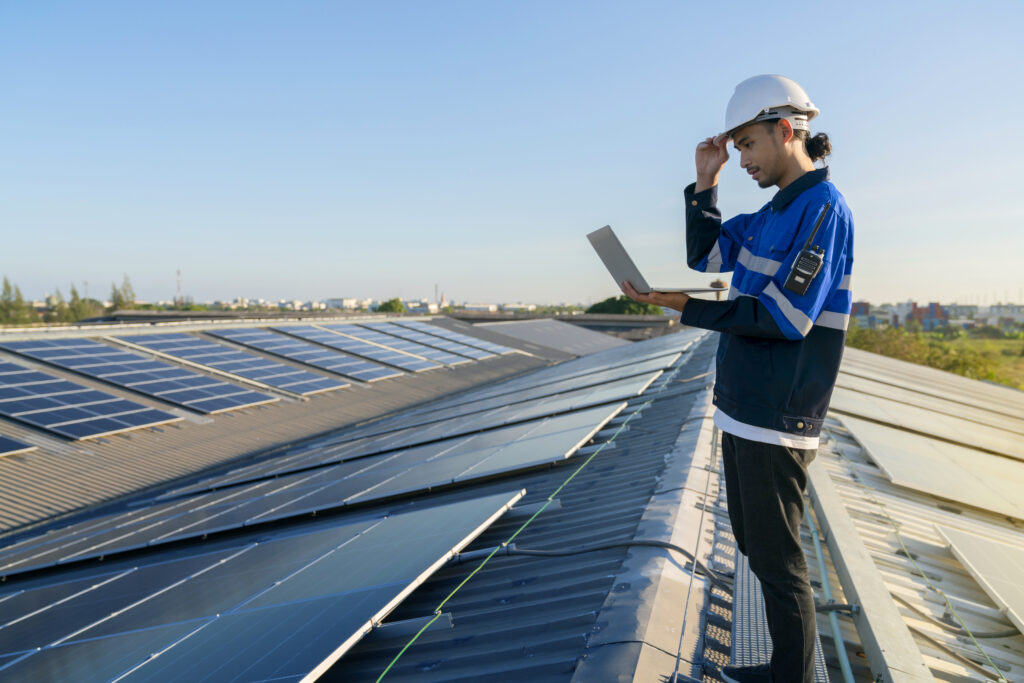Every year, Durham homeowners and businesses face rising energy costs and growing concerns about sustainability. Many are searching for ways to reduce electricity bills, improve energy independence, and contribute to a greener future. One of the most effective solutions is installing solar panels.
Unlike traditional energy sources that depend on fossil fuels, solar energy is a renewable, sustainable, and cost effective source. Installing solar panels not only lowers your monthly utility bills but also increases your property value, reduces your carbon footprint, and provides long term financial returns.
This comprehensive guide explores everything you need to know about solar panels in Durham, including benefits, installation processes, costs, financing risks, and how to choose the correct installer.
Why Durham Is a Smart Place for Solar
Electricity Trends and Costs
Durham residents face steadily increasing electricity bills year after year. Solar panels enable homeowners to offset these costs by generating their own clean energy, thereby reducing their reliance on utility companies and gaining control over long term expenses.
Climate and Sunlight Feasibility
Although Durham is not in a desert climate, it still receives plenty of sunlight to make solar panels effective. Modern solar technology performs well even on cloudy days and during winter months. Systems are designed to maximize production based on the region’s sunlight hours.
Local Incentives and Net Metering
Durham offers supportive policies for renewable energy. Residents may benefit from federal investment tax credits, utility rebates, and net metering programs, which allow them to sell excess electricity back to the grid or receive credits on future bills. These incentives reduce upfront costs and shorten payback periods.

Benefits of Installing Solar Panels in Durham
Reduced Energy Bills
By generating electricity directly from your roof or yard, solar panels help cut your monthly utility costs. Over time, the savings add up significantly.
Increased Property Value
Homes equipped with solar systems often sell faster and at higher prices. Buyers see long term value in reduced energy expenses.
Energy Independence
Solar panels protect you from future utility rate hikes. With a battery storage option, you can maintain power even during outages.
Environmental Benefits
Switching to solar means reducing your carbon footprint. By reducing greenhouse gas emissions, you contribute to a cleaner, more sustainable Durham.
Business and Brand Benefits
For local businesses, solar panels demonstrate a commitment to sustainability, improve public image, and may qualify for additional green business certifications.
Types of Solar Systems
Grid Tied Systems
Most common and cost effective. These are connected to the utility grid and allow net metering.
Off Grid Systems
Independent systems with battery storage are ideal for rural areas without reliable grid access.
Hybrid Systems
Combine grid access with battery backup, ensuring energy during outages while still benefiting from net metering.
Key Components
- Solar panels (mono, poly, or thin film)
- Inverters
- Mounting systems
- Wiring and electrical connections
- Monitoring systems
- Batteries (optional)
Solar Installation Process in Durham
Site Assessment
A technician evaluates the condition of your property’s roof and shading to determine solar feasibility.
System Design and Proposal
Engineers create a tailored plan estimating energy production costs and savings.
Permits and Approvals
Installers handle municipal permits, utility approvals, and incentive applications.
Installation
Panels are mounted, wired, and connected safely by certified electricians.
Activation and Inspection
Once inspected and approved, the system is switched on and begins generating energy.
Maintenance
Solar systems require minimal upkeep with occasional cleaning and periodic inspections to ensure peak efficiency.
Costs and Financing
Typical Costs
Residential solar systems in Durham typically range from $15,000 to $25,000, depending on the system’s size and equipment.
Incentives and Rebates
- Federal solar investment tax credit (ITC)
- Property tax exemptions
- Utility rebates
- Net metering credits
Financing Options
- Cash purchase (best long term ROI)
- Solar loans and home equity loans
- Leasing or power purchase agreements (PPAs)
- Specialized renewable energy financing programs

Payback Period
Most systems achieve payback in 6 to 10 years with savings continuing for decades afterward.
Risks and How to Mitigate Them
- Roof issues → Ensure the roof is in good condition before installation.
- Shading problems → Conduct a shading analysis to maximize efficiency.
- Permit delays → Work with local installers who understand Durham regulations.
- Low quality equipment → Choose reputable manufacturers with strong warranties.
- Unexpected costs → Request a transparent proposal with no hidden fees.
Commercial and Agricultural Solar
Businesses, warehouses, and farms in Durham can benefit from large scale solar:
- Reduced operating costs
- Energy security and independence
- Improved brand image
- Access to accelerated depreciation and business incentives
- Long term sustainability goals
Real World Example
Residential Example
- 7 kW system
- Cost 22000 dollars
- Incentives 6000 dollars
- Net cost: 16000 dollars
- Annual savings of 1500 dollars
- Payback period 7 years
Commercial Example
- 50 kW system
- Cost 120000 dollars
- Incentives 30000 dollars
- Annual savings of 15000 dollars plus
- Payback 8 years
Choosing the Right Installer in Durham
When selecting a solar installer, consider:
- Proper licensing and insurance
- Local experience with Durham codes and utilities
- Custom system design
- Clear proposals without hidden fees
- Strong warranties (25 year panel, 10 to 15 year inverter)
- Ongoing support and maintenance services
Frequently Asked Questions
Q: Do solar panels work in winter
Yes, panels generate electricity in cold and cloudy weather, albeit at a reduced output.
Q: How long do solar panels last
25 to 30 years on average, with gradual performance degradation.
Q: Will solar damage my roof
No, when installed correctly with proper flashing and sealing.
Q: Can I expand later
Yes, systems can be designed to allow for future expansion.
Q: What happens in a power outage
Standard systems shut off for safety. With battery backup, you maintain power.
Myths About Solar in Durham
- “It’s too expensive.” Incentives and financing make it affordable.
- “Durham doesn’t get enough sun.” Modern systems work even in cloudy weather.
- “Maintenance is difficult.” Solar requires very little upkeep.
- “Permitting is too complicated.” Professional installers handle paperwork.
Long Term Outlook
- 5 years → Payback period approaching
- 10 years → Strong savings ROI proven
- 20 plus years → Energy independence, significant cost reductions, and environmental benefits
Tips for Maximizing ROI
- Install the right sized system
- Run heavy appliances during daytime production
- Keep panels clean
- Trim nearby trees
- Use monitoring apps to track performance
Call to Action
If you are a homeowner, business owner, or farmer in Durham, considering solar energy, now is the ideal time to take action. Solar panels are more affordable, efficient, and financially rewarding than ever before.
Take control of your energy future. Contact a trusted local solar installer today for a free site evaluation and discover how much you can save.



